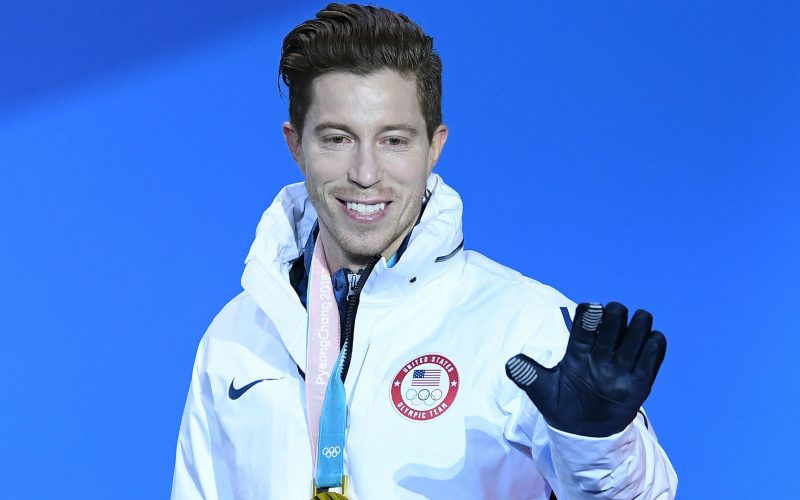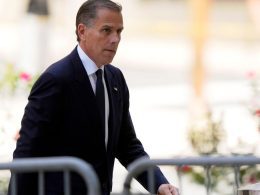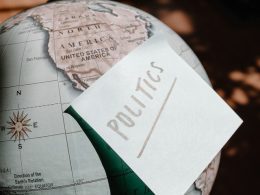Athletes like snowboarder Shaun White don’t just excel in their sport; they define it. With three Olympic gold medals and 23 X Games podium finishes, the 37-year-old’s name, like Jordan, Brady, and Harper, is bigger than the superpipes he rides. Following his swan song at the 2022 Tokyo Games (in which he finished fourth), White officially joined the ranks of retired greats. When we sat down with him in Park City, Utah, at the High West distiller’s’ tasting room, we found that he hadn’t stopped aiming high.
With the launch of his semi-eponymous snowboard company, Whitespace, and savvy partnerships like that with High West, which has joined White to raise awareness (and $1 million) for its Protect the West initiative, the definitive Snowsport athlete of his generation has redirected his energy into the next phase of his life. Now, alongside being a great Snowsport athlete, he’s a business owner, an activist, and a man continually pursuing the next big thing.
For Real-Life Diet, GQ talks to athletes, celebrities, and other high performers about their diet, exercise routines, and pursuit of wellness. Keep in mind that what works for them might not necessarily be healthy for you. GQ: So, two years into retirement, how do your days look now that you’re not prepping for the next contest?
Shaun White: Well, I’m still working out. I asked a lot of athletes, and there, like, don’t stop working out when you retire.
Who’d you ask?
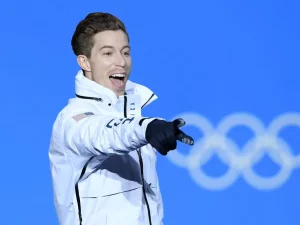
Twenty-eight-time Olympic medalist swimmer Michael Phelps, [former NFL defensive end and television host] Michael Strahan, some pro hockey players, a bunch of folks. And there, like, “Enjoy the nothingness. Enjoy some of that time in between retirement and that next thing that grabs you. Because you’ll miss that you didn’t use that time to really enjoy the moment.” So, after retiring, I just traveled to Antarctica and Indonesia, all these really fun places that I normally wouldn’t have wanted or needed to go to for my work.
The biggest thing is just the mindset. Normally, when I show up somewhere, I’m pretty stressed: I’ve got this finite amount of time to learn the course, adapt to the altitude, do media requests, take sponsor requests, and have time to practice. Now, I’m hanging with friends and going down to check out a new restaurant. There’s a lot more I have access to in these places, so it’s like I’m doing it all over again for the first time.
Athletes who retire may get through the first year or two, but then the itch starts. Guys like Brady and Jordan un-retire. So, are you feeling it?
Yes and no. I’d be lying if I said that I didn’t feel a certain way when I watched certain contests. But there’s a big difference between having a reaction and what it would take to actually compete again. The scary thought is that the world stops spinning. This is how I got praise, respect, and financial freedom. If that ends, then what happens? I try to let that feeling go and enjoy the other things because you focus on what you give energy to. It’s a mindset.
How have you steeled yourself against it and taken care of your mental health?
Well, I’m still trying tricks, which is fun. Yeah, I think I saw you invented a 900 while holding your girlfriend. Yeah, I tagged the Olympics, like, you guys ready for doublest? I’m still getting out there riding. I think that was a saving grace. When I look at Tom Brady, you can’t really go enjoy his sport solo. I rode this morning, deep powder, with my friends. It’s not that itch, but it gets some of it. So I feel fortunate that snowboarding is that kind of sport.
How has your diet changed now that you are just riding for fun?
I think I’m stricter now. It shook me when somebody said, “Whatever you become in your 30s is what you’re going to be for the rest of your adult life.”
Who said that?
It was probably, like, a girlfriend body-shaming me. (Laughs.) It makes me sound like an asshole, but I was on Richard Branson’s Island—retirement, man—Necker Island, and the guys that do Blue Zones [a book studying the world’s longest-lived peoples] were explaining what these people do. I eat a lot less meat than I did before.
Like, Fish?
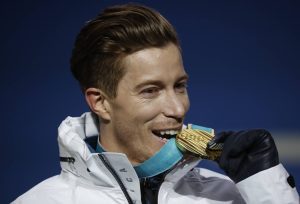
Yeah, but then I watched that [2021 documentary] Seaspiracy movie, and I was like, Ahhhh. My girlfriend [Canadian actress Nina Dobrev] doesn’t do gluten or dairy, so naturally, we don’t have a lot of bread and dairy around the house. And then, if I cut back the meat, I feel like I’m on a really good thing. I don’t do heavy breakfasts anymore. I just do shakes. I feel like I’m lighter, I’ve got energy to burn, and I’m hungry later.
What’s in a typical breakfast shake?
There’s this brand called Ka’Chava that offers plant-based protein and a whole bunch of other stuff. This is the first one that I’ve had that tastes great. I’ll mix the chocolate protein powder with oatmeal, flaxseed, chia seeds, a little bit of avocado, and banana with almond milk, and I’m off. So it’s going to save me time and keep me going through the day.
You make it sound like retirement is busier than one might expect.
It’s like I’ve got a new lease on life—I want to enjoy every bit of it. Waking up early because you want to rather than because you have to is a big difference, you know?
We’re here in the High West distillery because of your relationship with the brand. So, how have you learned to balance alcohol in your own life?
At one point in my career, I had to have friends who were on “shot patrol,” as we called it because people would come up to me and say, “Dude, I bought you a shot.” And you want to because they spent their money on it, but if I took every shot I was offered, I’d be dead. So the crew would take the shot, and I would be like, “Thank you so much.”
I always loved whiskey because I would sip it, whereas with other drinks, I’d just slam it and be more hungover for traveling. I just found I’d have better nights when I was sipping whiskey. That got me into different whiskeys, and then, obviously, being in Park City, I used to ride for the mountain for nine years when I was younger.
It’s strange to think of you in the context of Utah most people associate you with California resorts like Mammoth.
Those were the local resorts that I would hit when I first started riding, which are great. But Park City has the Olympic training center, and [the resort] was one of the first to get the 22-foot halfpipe. It’s an hour-and-a-half flight and a 30-minute drive to the mountain, and I can be here riding, whereas, in other places, it’s more of a trek.
Now that you’ve stepped back from competition, how has your body responded?
When I retired, everything started hurting: my back, neck, and these little things. I was doing a little better the season after I retired. I put my hand down to drag, and my shoulder just popped out of the socket. Never in my whole life has it happened. It’s like when you’re traveling so much when you stop everything, that’s when you get sick because you finally have time to be sick. I think I finally have time to realize how sore I am. But it’s a managed thing. I don’t go as hard as I used to, where I push through everything. It’s more calculated; for example, I have this many runs in me. I don’t want to feel this way tomorrow because I want to ride again.
Conclusion
In conclusion, Shaun White’s transition into retirement showcases a multifaceted approach to life beyond competitive snowboarding. Through insightful reflections and adjustments in diet, exercise routines, and mindset, White demonstrates a proactive approach to maintaining physical and mental well-being. Embracing new opportunities, from exploring exotic destinations to engaging in entrepreneurial ventures and advocacy work, he exemplifies a redefined identity beyond the confines of his athletic career. Balancing leisure with purpose, White’s journey underscores the importance of adaptability, self-care, and embracing the joy of newfound freedom in the post-competitive phase of life.
_______________________________________________________________________






